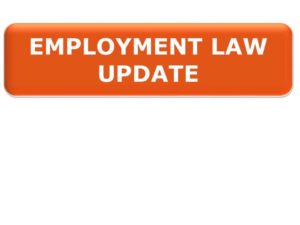
New draft Right to Work guidance published
Tuesday 29th June 2021
Many clients have asked us recently about the related issues of settled status and right to work (‘RTW’) in the UK checks. The two issues are different albeit related – settled status is a matter for the individual whereas right to work checks are very definitely the responsibility of the employer.
All employers have for many years had responsibility to prevent illegal working in the UK by ensuring that their employees have the right to work here. The illegal working provisions of the Immigration, Asylum and Nationality Act 2006 (‘the Act’) came into force in 2008 and provided for heavy fines for employers who don’t carry out these requirements correctly. But employers have been waiting for updated guidance given that from 1 July 2021, EEA citizens and their family members require immigration status in the UK, in the same way as other foreign nationals.
The government published the updated guidance on 10 June 2021. This is simply a post-Brexit update as opposed to a whole new regime but it clarifies many of the issues that employers have been waiting to hear about.
The draft code of practice explains what most employers already know, that since Brexit and the end of free movement law in the UK on 31 December there followed a grace period of six-months (until 30 June 2021) during which relevant aspects of free movement law were saved to allow eligible EEA citizens and their family members resident in the UK by 31 December 2020 to apply to the EU Settlement Scheme. However from 1 July 2021, EEA citizens and their family members require immigration status in the UK, in the same way as other foreign nationals. They can no longer rely on an EEA passport or national identity card, to prove their right to work.
As it has always been, provided that before an employer takes on a new employee they complete the RTW check correctly and can adequately evidence they have done so, then, if it later transpires the employee did not have the legal RTW for them in the UK, the employer should have a statutory defence to the offence of employing someone illegally.
The draft code which will come into effect on 1 July 2021 covers the changes to the RTW checks for EEA/Swiss nationals. This date dovetails with the Settled Status deadline of 30 June 2021 which enables EEA/Swiss nationals and family members to remain living and working in the UK legally.
Importantly, the draft indicates that previous RTW checks do not need to be repeated so long as they were done properly at the time. It states, “Right to work checks which were carried out in the prescribed manner prior to this code having effect will be considered by the Secretary of State in line with the version of the code which was current at the time at which the right to work check was made.” It also makes clear that checks done pre-1 July 2021 for a start date after 1 July 2021 need only comply with the version of the code of practice in place at the time the RTW checks were made.
The code explains that since 28 January 2019, employers have had the option to conduct either a manual right to work check or an online right to work check in order to establish a statutory excuse against a civil penalty in the event that an employee is found to be working illegally. Increasingly, the Home Office is providing digital evidence of immigration status, rather than issuing physical documents. This means they will only be able to evidence their right to work using the Home Office online service. But this doesn’t apply to all employees or in all circumstances so the manual document-based system is still acceptable.
By way of reminder, employers must obtain original versions of one or more of the acceptable documents, check the documents in the presence of the holder of the documents and make copies of the documents, retain the copies and a record of the date on which the check was made. Additionally employers are responsible for checking documents are genuine, that that the person presenting them is the prospective employee or employee, that the photograph and dates of birth are consistent across documents and with the person’s appearance.
Acceptable documents
The lists of acceptable documents are still called List A and List B. List A sets out the acceptable documents to establish an ongoing statutory excuse. In other words, if the RTW check is made using a document from List A, no follow up check will be required. There are some additions to this list including Frontier Work Permits and Irish passports.
List B is the list for those employees who only have time limited permission to live and work in the UK and has a several additional documents for EEA/Swiss nationals. If an employer has made the RTW check using a List B document, they must diarise a follow up check at the appropriate time.
Home Office Employer Checking Service
The draft code sets out details of the Home Office Employer Checking Service and states that this can be used where an individual, “cannot provide the employer with any of the documents from List A or List B, but claims that:
• they have an ongoing immigration application or appeal with the Home Office
• their documents are with the Home Office, or
• they present other information indicating they are a long-term resident of the UK who arrived in the UK before 1988.”
It provides that the statutory excuse will continue from the expiry date of an existing employee’s leave for a further period of up to 28 days to enable the employer to obtain a Positive Verification Notice from the Employer Checking Service. However this ‘28-day period’ does not apply to checks carried out before the start of the employment. In those circumstances, the start date must be delayed: employment should not start until the employer has received a Positive Verification Notice from the Employer Checking Service.
Further changes to the draft code are not anticipated before the final version is published.
The draft code is available to view at https://assets.publishing.service.gov.uk/government/uploads/system/uploads/attachment_data/file/991571/DRAFT_Code_of_practice_on_preventing_illegal_working_-_Web_Accessible.pdf
If you would like to discuss this further, then please contact one of our employment experts below. To view the full June Employment Law Update, click here:






